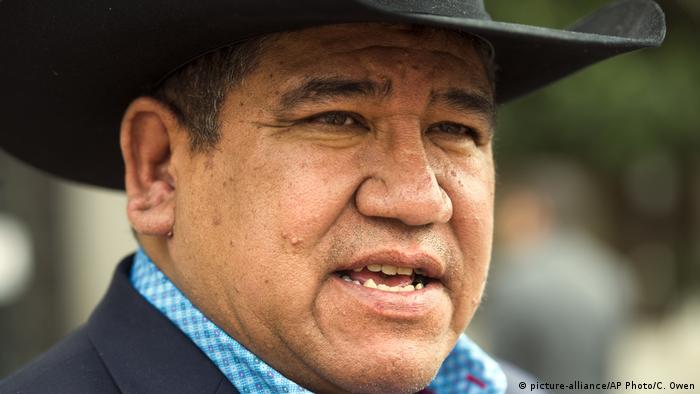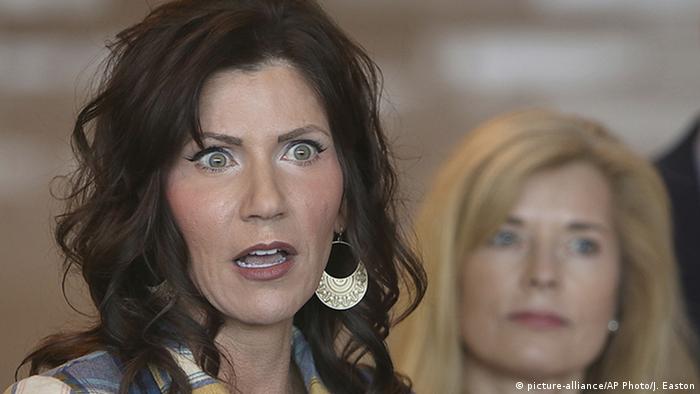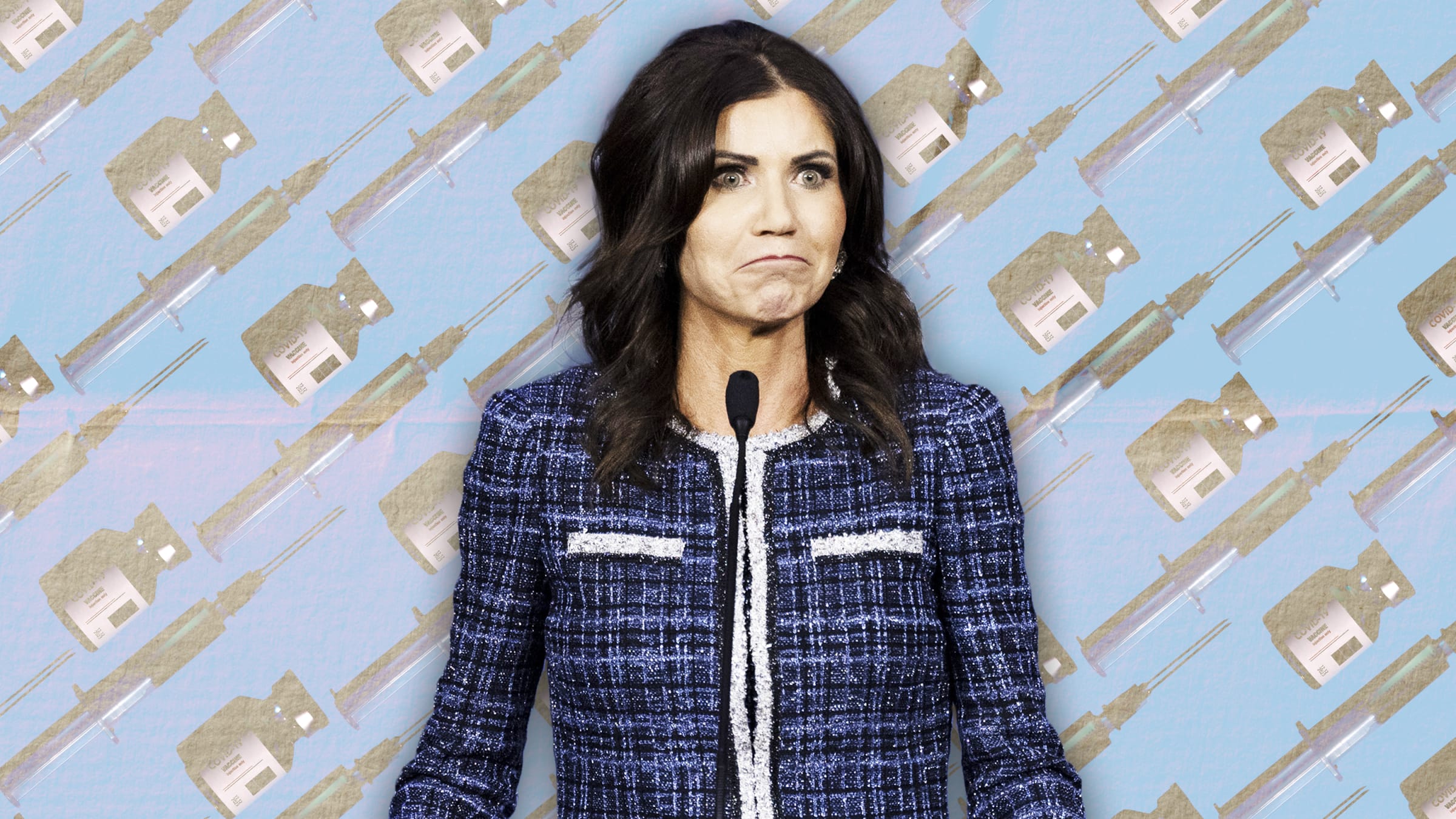April 5, 2024

Republican presidential candidate and\u00a0former President Donald Trump greets South Dakota Governor Kristi Noem after she introduced him at the Monument Leaders Rally hosted by the South Dakota Republican Party on September 8, 2023, in Rapid City, S.D. Noem endorsed Trump during the event. (Photo by Scott Olson/Getty Images)
Republican South Dakota Gov. Kristi Noem has been barred from a Native American reservation because its residents accuse her of “gossip and lies,” according to a report.
Noem is reportedly on the shortlist to be a running mate for 2024 GOP presidential nominee Donald Trump and has been a popular speaker at the Conservative Political Action Conference (CPAC), and MAGA Republicans view her as a staunch Trump loyalist.
But she has plenty of critics outside of MAGA circles, including Native Americans in her state.
According to Dakota News Now, Cheyenne River Sioux Tribe has banned Noem from its reservation. It was only two months ago, in February, that the Oglala Sioux Tribe announced a similar ban against her.
These bans come after some disparaging comments Noem made about Native American reservations during a town hall event on March 13.
Dakota News Nob reports, "Noem stated, at a Winner, (South Dakota) town hall on March 13, that she believes tribal leaders are 'personally benefiting' from drug cartels. At a town hall in Mitchell, she said tribal children 'don't have parents who show up and help them,' and tribal members 'have a tribal council or a president who focuses on a political agenda more than they care about actually helping somebody's life look better.'"
Cheyenne River Sioux Tribe Chairman Ryman LeBeau said of Noem, "The South Dakota governor speaks gossip and lies about our Lakota students, their parents and our tribal councils. (The) SD governor's statements made on March 13, 2024 perpetuate stereotypes, misconceptions, which are inaccurate and untrue."






















